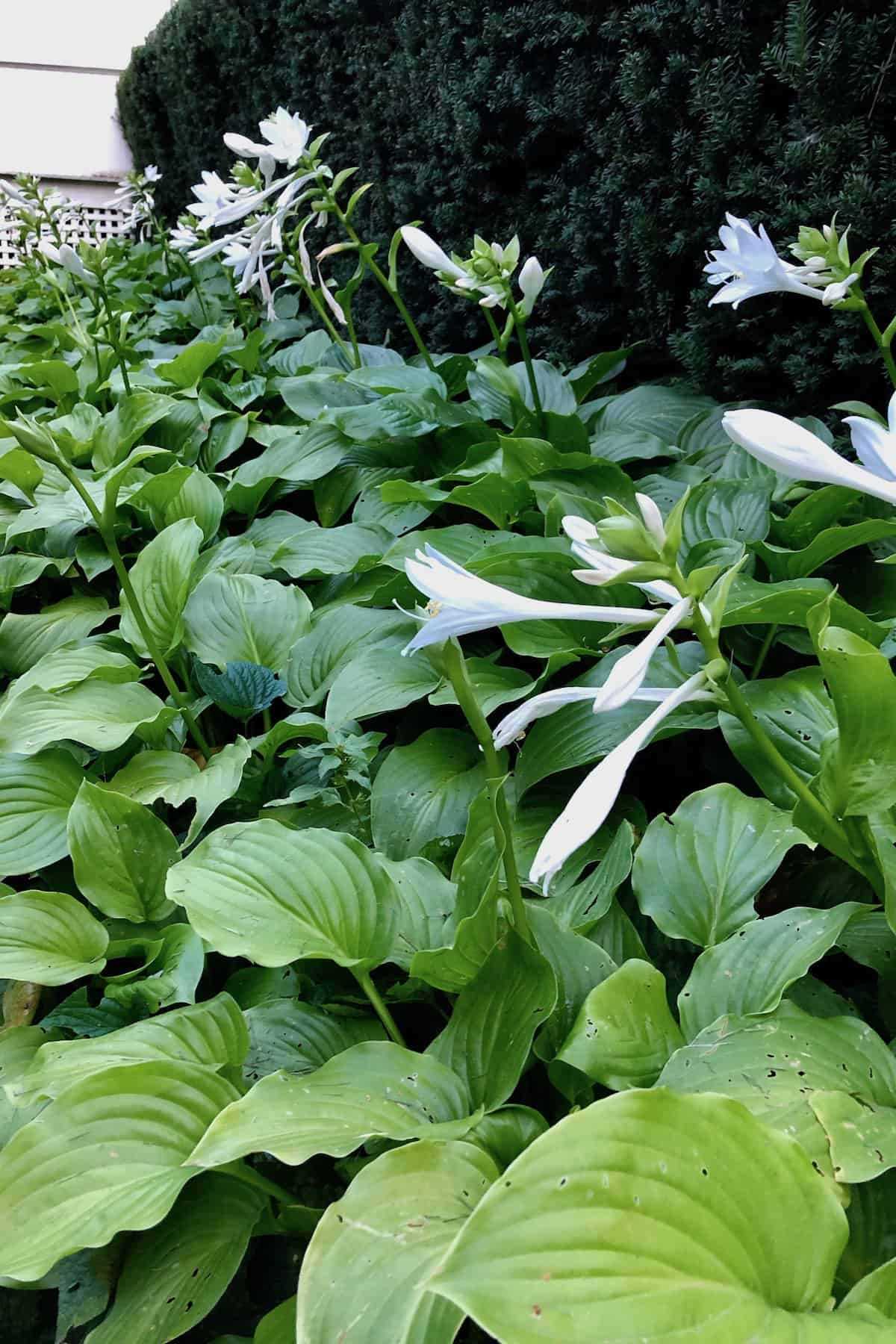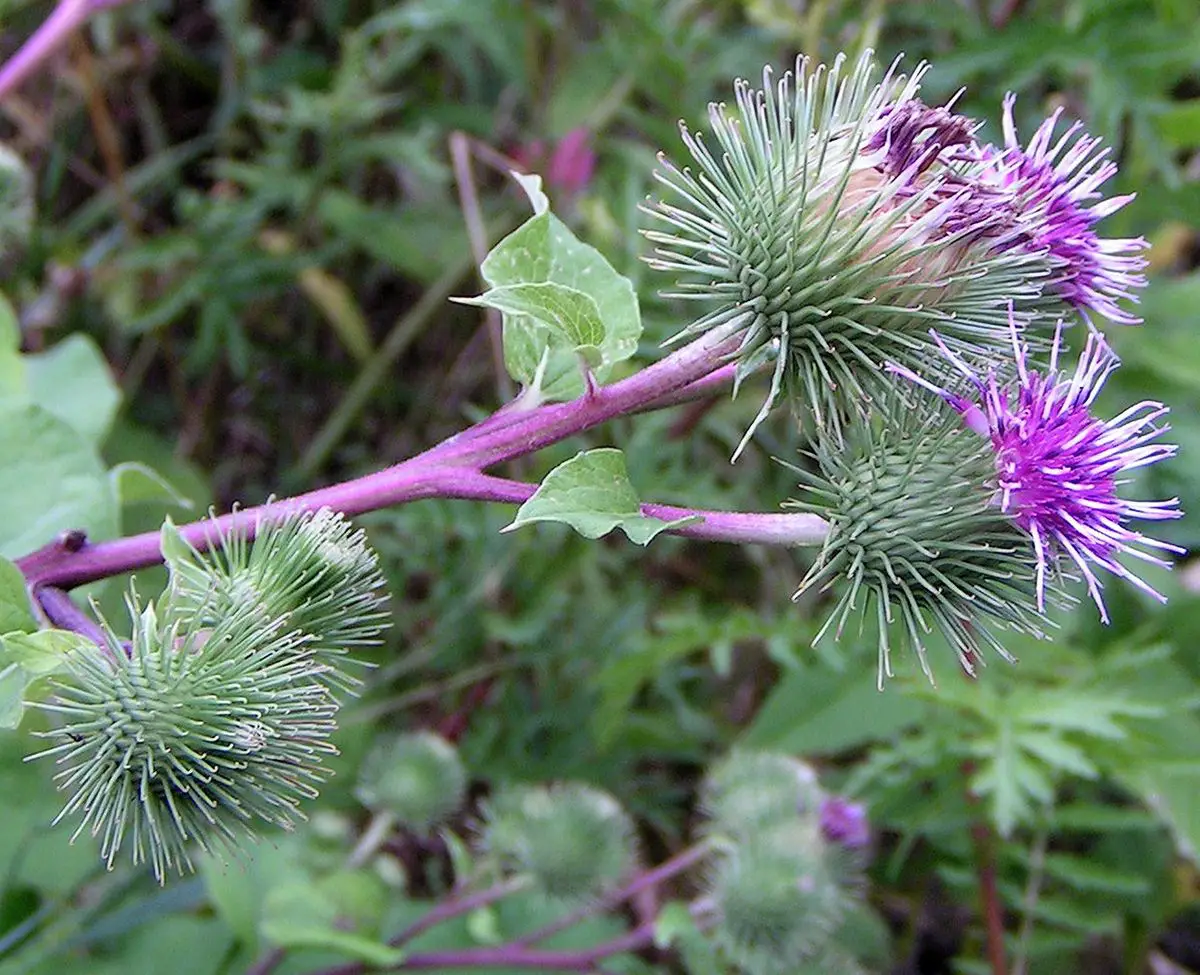- Plant Mosquito Repellent Herbs in Your Garden
- Growing herbs that naturally repel mosquitoes
- Utilize Citronella Oil as an Outdoor Repellent
- How to Use Citronella Oil
- Benefits of Using Citronella Oil
- Precautions and Considerations
- Using citronella oil to keep mosquitoes away
- 1. Citronella candles
- 2. Citronella oil spray
- 3. Citronella plants
- Use Lemon Eucalyptus Oil as a Natural Spray
- Creating a homemade mosquito repellent spray with lemon eucalyptus oil
- Plant Marigolds to Deter Mosquitoes
- 1. Strong Aroma
- 2. Pyrethrum Content
- 3. Easy to Grow
- 4. Attractive Appearance
- The benefits of marigolds in repelling mosquitoes
- Install Bug Zappers for Effective Mosquito Control
- How Bug Zappers Work
- Installing Bug Zappers
- How bug zappers work and their effectiveness
- Components of a bug zapper
- Effectiveness of bug zappers
- Questions and Answers:
- Which plants are effective at repelling mosquitoes?
- How do these plants repel mosquitoes?
- Can these plants be grown indoors?
- How often should these plants be watered?
- Are there any other benefits to having these plants around?
- Can these plants be used as a sole method of mosquito control?
- Videos: Keep these plants to get rid of ants, bedbugs, spiders, mice, and insects
Mosquitoes are not only annoying pests, but they can also transmit diseases such as malaria, dengue fever, and Zika virus. While there are chemical insecticides and repellents available on the market, many people prefer natural alternatives to avoid the harmful effects of these chemicals. One effective and environmentally friendly option is to use plants that naturally repel mosquitoes.
1. Citronella: Citronella is a well-known plant that repels mosquitoes. Its strong scent masks the scents that attract mosquitoes, making it difficult for them to locate their targets. Citronella candles and oils are also effective, but having the plant in your garden or patio can provide an ongoing deterrent.
2. Lavender: Lavender not only has a pleasant smell, but it also repels mosquitoes. Plant lavender in your garden or keep a bouquet inside your home to naturally ward off these pesky insects. In addition, you can use lavender oil on your skin as a natural repellent.
3. Marigold: Marigolds contain a compound called pyrethrum, which is commonly used in insect repellents. Planting marigolds around your patio or garden can help repel mosquitoes and other insects, while adding a pop of color to your outdoor space.
4. Basil: Basil is not only a versatile cooking herb but can also repel mosquitoes. Planting basil near doors and windows can help keep mosquitoes away while adding flavor to your meals. You can also make a DIY mosquito repellent spray by crushing basil leaves and mixing them with water.
Remember, while these plants can help repel mosquitoes, they might not provide complete protection. It’s still important to take other preventive measures such as wearing long sleeves and using mosquito nets, especially in areas with a high risk of mosquito-borne diseases.
By incorporating these natural mosquito-repelling plants into your garden or home, you can create a more pleasant and mosquito-free environment. Not only are these plants effective, but they also add beauty and fragrance to your surroundings. So, why not give them a try and enjoy the benefits of a natural and safe alternative to chemical repellents.
Plant Mosquito Repellent Herbs in Your Garden
If you want to naturally repel mosquitoes and create a mosquito-free zone in your garden, consider planting mosquito repellent herbs. These herbs not only add beauty to your garden but also serve as natural mosquito repellents.
Here are some mosquito-repellent herbs you can plant:
- Lavender: Lavender not only smells great but also has natural mosquito-repellent properties. Plant lavender in your garden to keep mosquitoes away.
- Citronella grass: Citronella is a well-known mosquito repellent. Plant citronella grass in pots or directly in your garden to repel mosquitoes.
- Lemon balm: Lemon balm is a member of the mint family and emits a strong lemon scent, which mosquitoes dislike. Plant lemon balm in your garden to naturally repel mosquitoes.
- Peppermint: Peppermint is another member of the mint family that mosquitoes dislike. Plant peppermint in your garden to repel mosquitoes naturally.
- Rosemary: Rosemary not only adds flavor to your cooking but also repels mosquitoes. Plant rosemary in your garden to naturally keep mosquitoes away.
Here are some tips for planting mosquito repellent herbs:
- Choose a sunny spot in your garden for planting these herbs, as they thrive in sunlight.
- Ensure the soil is well-drained and rich in organic matter.
- Keep the herbs well-watered, especially during dry spells.
- Regularly trim and prune the herbs to promote bushy growth and release more fragrance.
By planting these mosquito repellent herbs in your garden, you can naturally create a mosquito-free environment. Enjoy your outdoor space without the annoyance of mosquitoes!
Growing herbs that naturally repel mosquitoes
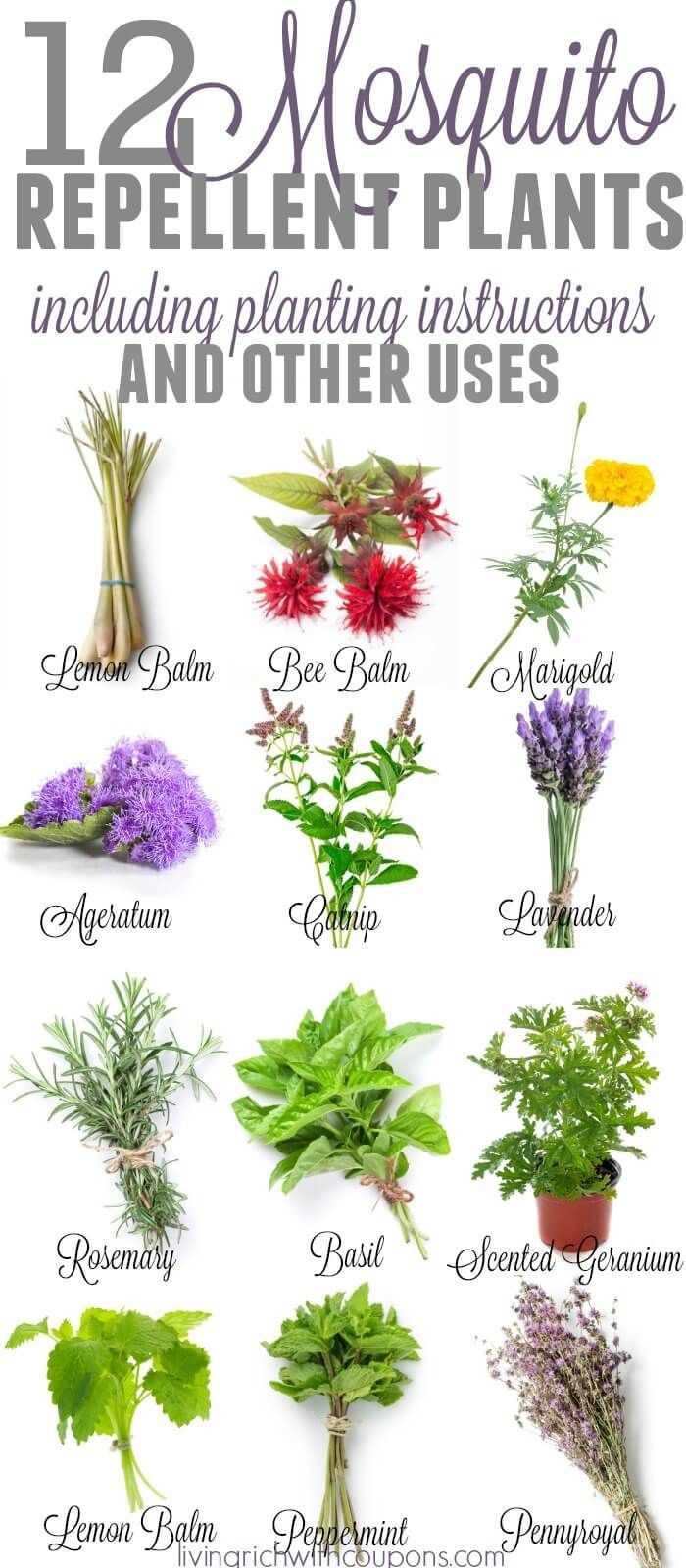
Gardening with herbs that naturally repel mosquitoes is a great way to enhance the beauty of your outdoor space while keeping those pesky insects at bay. Here are a few herbs that are known for their mosquito-repelling properties:
- Lemon balm: Lemon balm is a versatile herb with a lemony scent that mosquitoes dislike. Plant it in pots or in your flower beds to repel mosquitoes and enjoy its refreshing aroma.
- Lavender: Lavender not only smells amazing, but it also repels mosquitoes. Plant lavender in sunny areas of your garden to keep mosquitoes away, and enjoy the relaxing scent as you walk by.
- Citronella grass: Citronella grass is well-known for its mosquito-repelling properties. Consider planting it in clumps or as a border around your patio or outdoor seating area.
- Mint: Mint is not only great for adding flavor to your favorite dishes and drinks, but it also repels mosquitoes. Plant mint in pots or in a dedicated area of your garden to keep mosquitoes at bay.
When planting these herbs, make sure to provide them with well-draining soil and plenty of sunlight. Regularly water them to keep the soil moist, but avoid overwatering. Additionally, consider interplanting these herbs with other mosquito-repelling plants for added protection.
Not only do these herbs naturally repel mosquitoes, but they also add beauty and fragrance to your garden. So, why not give them a try and create a mosquito-free oasis right in your backyard?
Utilize Citronella Oil as an Outdoor Repellent
Citronella oil is a natural and effective solution for repelling mosquitoes outdoors. It is derived from the Citronella plant, which is a grass-like plant that belongs to the Cymbopogon family. The oil has a strong and distinct scent that repels mosquitoes and other insects.
How to Use Citronella Oil
- 1. Citronella candles: Place citronella candles in your outdoor areas, such as the patio or garden, to create a mosquito-free zone. The burning candles release the oil into the air, creating a protective barrier against mosquitoes.
- 2. Citronella torches: Use citronella torches to add both light and mosquito repellent to your outdoor gatherings. Simply fill the torches with citronella oil and light them for a continuous release of the repellent.
- 3. Citronella spray: Make a DIY citronella spray by mixing citronella oil with water in a spray bottle. Spray this mixture around your outdoor seating areas, umbrellas, and other mosquito-prone areas to repel the insects.
Benefits of Using Citronella Oil
- Natural: Citronella oil is a natural alternative to chemical-based mosquito repellents, making it a safer option for you and the environment.
- Effective: Citronella oil has been proven to repel mosquitoes effectively. Its strong scent masks the human scent that attracts mosquitoes, keeping them at bay.
- Accessible: Citronella oil is widely available and can be found in various forms, such as candles, torches, and sprays, making it easy to incorporate into your outdoor activities.
Precautions and Considerations
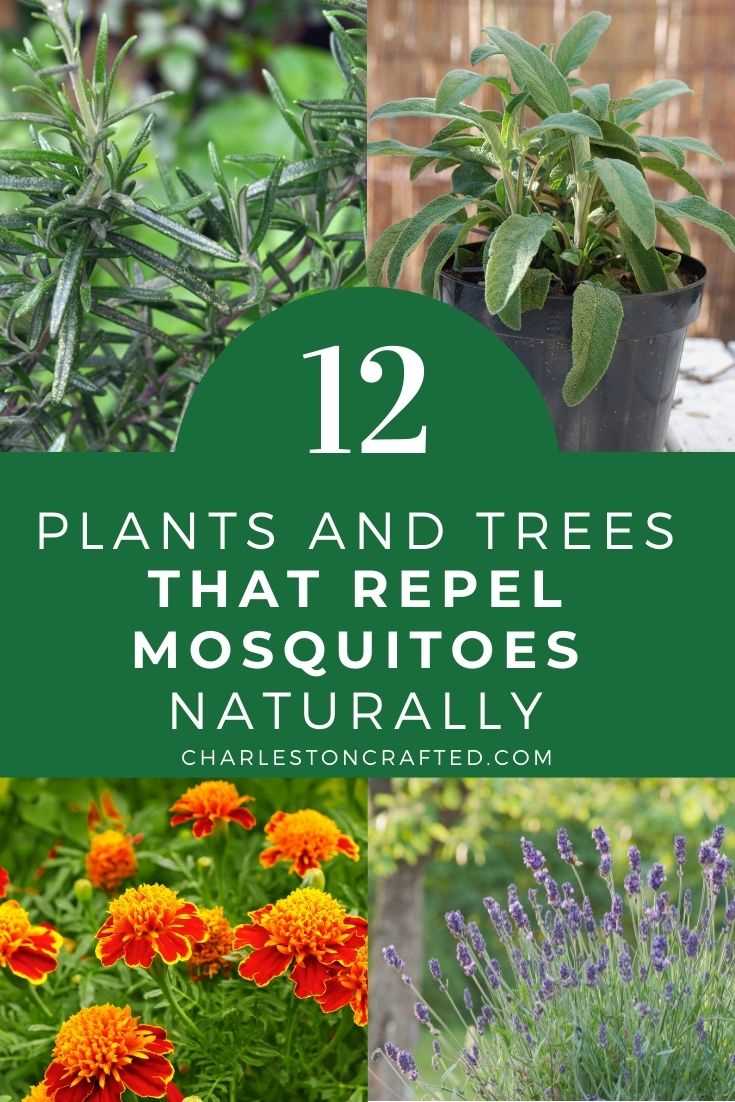
While citronella oil is generally safe to use, it is important to keep a few precautions in mind:
- 1. Citronella oil may cause skin irritation in some individuals. It is recommended to do a patch test before applying it directly to your skin.
- 2. Avoid contact with eyes and mouth when using citronella oil. If contact occurs, rinse thoroughly with water.
- 3. Keep citronella oil away from children and pets to prevent accidental ingestion.
- 4. Follow the instructions provided on the citronella product packaging for proper use.
By utilizing citronella oil as an outdoor repellent, you can create a mosquito-free environment and enjoy your time outdoors without worrying about itchy mosquito bites.
Using citronella oil to keep mosquitoes away
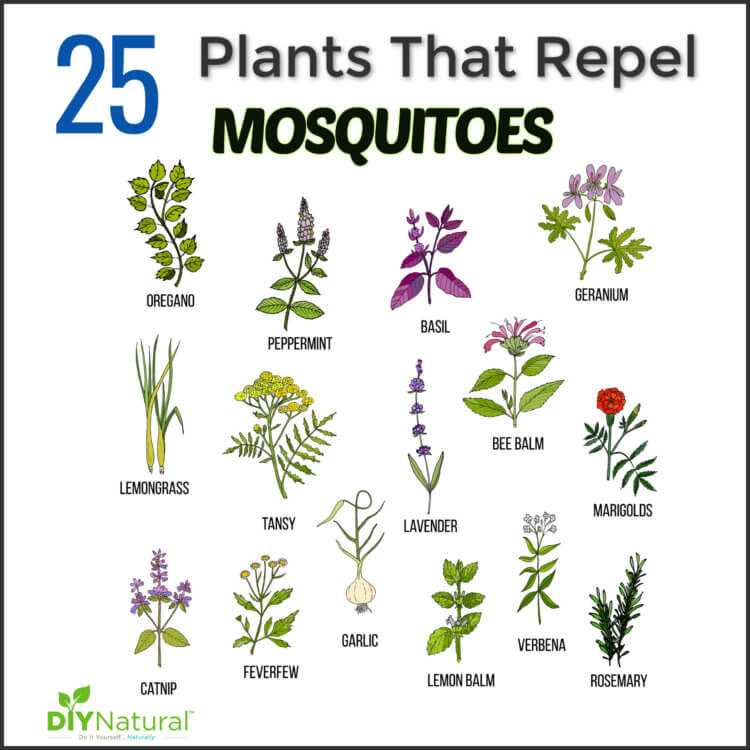
Citronella oil is a popular natural repellent that can be used to keep mosquitoes away. It is derived from the leaves and stems of the citronella grass plant, which is known for its strong aroma that is unpleasant to mosquitoes. Here are some strategies for using citronella oil effectively:
1. Citronella candles
One way to use citronella oil is by using citronella candles. These candles are infused with citronella oil and can be lit to release the scent into the air. Place these candles around your outdoor area to create a barrier against mosquitoes. However, keep in mind that the effectiveness of citronella candles may vary depending on the size of the area and the presence of wind.
2. Citronella oil spray
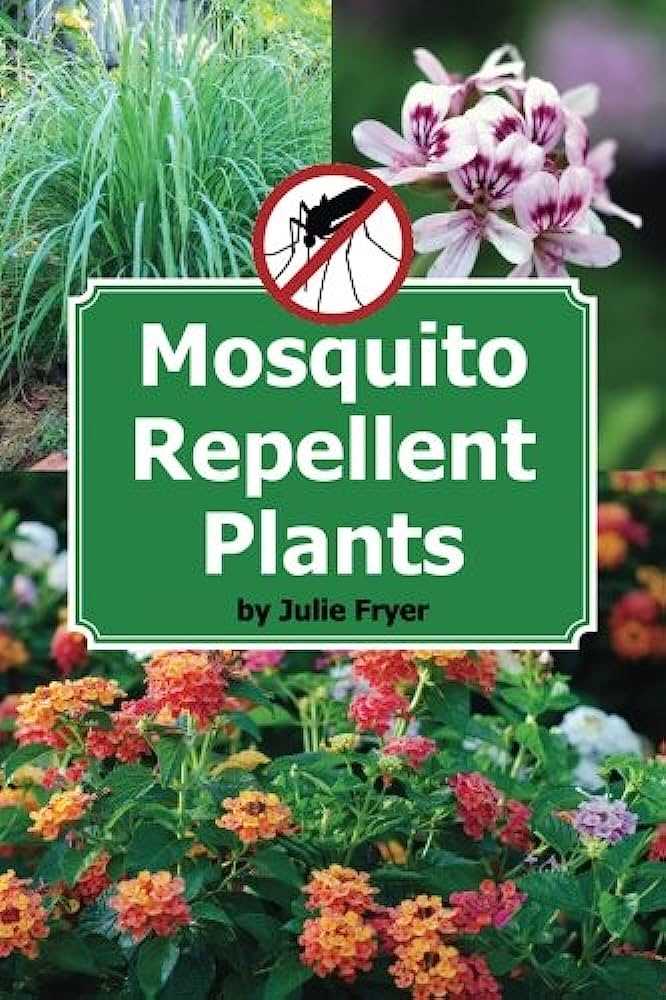
Another method is to create a citronella oil spray. Mix a few drops of citronella oil with a carrier oil such as olive or coconut oil. Pour the mixture into a spray bottle and spray it on your skin and clothing before going outdoors. This can help repel mosquitoes and prevent bites. However, make sure to perform a patch test on a small area of your skin before applying the spray all over to check for any adverse reactions.
3. Citronella plants
In addition to using citronella oil, you can also plant citronella grass or other citronella plants in your garden. These plants contain citronella oil and have a similar repellent effect on mosquitoes. Place them strategically around your outdoor area to provide a natural barrier against mosquitoes. However, keep in mind that the scent of the plants may not be as strong as the concentrated citronella oil.
Remember, while citronella oil can be an effective natural repellent, it may not offer 100% protection against mosquitoes. It is still important to take other precautions such as wearing long sleeves, using mosquito nets, and eliminating standing water to reduce mosquito populations in your area.
Use Lemon Eucalyptus Oil as a Natural Spray
If you’re looking for a natural and effective way to repel mosquitoes, consider using lemon eucalyptus oil. This essential oil is derived from the lemon eucalyptus plant and has been proven to be a highly effective mosquito repellent.
Lemon eucalyptus oil contains a compound called PMD (p-menthane-3,8-diol), which has been approved by the Centers for Disease Control and Prevention (CDC) as an effective natural mosquito repellent. This makes it a safer alternative to chemical-based repellents that may contain harmful ingredients.
To use lemon eucalyptus oil as a natural spray, follow these steps:
- Mix 10-15 drops of lemon eucalyptus oil with 2 tablespoons of a carrier oil, such as coconut oil or olive oil.
- Transfer the mixture into a spray bottle for easy application.
- Shake the bottle well to ensure that the oils are well-blended.
- Spray the mixture onto your skin, avoiding sensitive areas such as the eyes and mouth.
- Reapply the spray every few hours or as needed, especially if you’re spending time outdoors.
It’s important to note that lemon eucalyptus oil should not be used on children under the age of three. Additionally, make sure to perform a patch test on a small area of your skin before applying the spray to ensure that you are not allergic to the oil.
In addition to using lemon eucalyptus oil as a spray, you can also create a natural mosquito repellent by planting lemon eucalyptus plants in your garden. The scent of the plant will naturally repel mosquitoes, helping to create a mosquito-free zone in your outdoor space.
By using lemon eucalyptus oil as a natural spray, you can effectively repel mosquitoes without the use of harmful chemicals. Give it a try and enjoy a mosquito-free summer!
Creating a homemade mosquito repellent spray with lemon eucalyptus oil
Lemon eucalyptus oil is a natural and effective way to repel mosquitoes. By creating a homemade mosquito repellent spray using lemon eucalyptus oil, you can avoid using chemical-based repellents that may have negative impacts on your health and the environment.
Materials needed:
- 1 bottle of pure lemon eucalyptus oil
- 1 small spray bottle
- Distilled water
- Optional: additional essential oils (such as lavender or citronella) for added scent and repellent properties
Instructions:
- Fill the small spray bottle halfway with distilled water.
- Add 10-15 drops of lemon eucalyptus oil to the spray bottle.
- Optional: Add a few drops of additional essential oils for fragrance and enhanced repellent properties.
- Tightly close the spray bottle and shake well to mix the ingredients.
- Your homemade mosquito repellent spray is now ready to use.
Usage:
To use the homemade mosquito repellent spray, simply spray it onto your skin, clothes, and any areas where mosquitoes are known to be a problem. Remember to reapply the spray every few hours or as needed.
Precautions:
Although lemon eucalyptus oil is generally safe for topical use, it is always recommended to do a patch test on a small area of your skin before applying it more extensively. Additionally, avoid spraying the mixture near your eyes or mouth. If you experience any adverse reactions, discontinue use immediately.
Benefits of lemon eucalyptus oil:
Lemon eucalyptus oil contains a natural compound called PMD (p-menthane-3,8-diol), which has been proven to effectively repel mosquitoes and other biting insects. Unlike other chemical-based repellents, lemon eucalyptus oil does not have a strong odor and is generally safe for use on both adults and children.
Note:
Lemon eucalyptus oil should not be used on children under the age of 3 years, as it can cause skin irritation. Always consult with a healthcare professional before using any essential oils, especially on children or individuals with specific medical conditions.
Plant Marigolds to Deter Mosquitoes
Marigolds are not only beautiful flowers but also an effective natural deterrent against mosquitoes. By planting marigolds in your garden or around the perimeter of your outdoor space, you can help keep these pesky insects at bay. Here’s why marigolds are so effective at repelling mosquitoes:
1. Strong Aroma
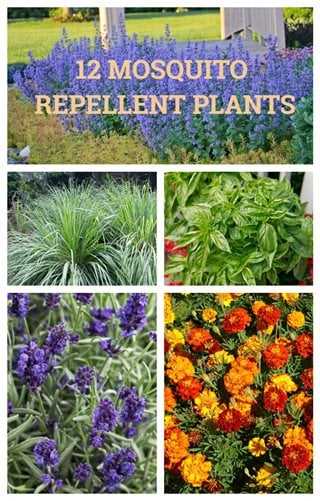
Marigolds produce a strong and distinct aroma that mosquitoes find unappealing. The scent of marigolds masks the odors that attract mosquitoes, making it more difficult for them to locate their targets. Planting marigolds near windows, doorways, and outdoor seating areas can significantly reduce the mosquito population in those areas.
2. Pyrethrum Content
Marigolds contain a natural compound called pyrethrum, which is commonly used in mosquito repellents. Pyrethrum is a powerful insecticide that is derived from certain species of chrysanthemum flowers, including marigolds. When mosquitoes come into contact with marigolds, the pyrethrum in the flowers acts as a natural repellent and can disrupt their nervous system.
3. Easy to Grow
One of the advantages of planting marigolds for mosquito control is that they are easy to grow. These vibrant flowers can thrive in various soil conditions and do not require high maintenance. Marigold seeds can be sown directly in the ground or started indoors and then transplanted outside. With proper care and a sunny location, marigolds can quickly establish themselves and provide a natural defense against mosquitoes.
4. Attractive Appearance
Besides their mosquito-repelling properties, marigolds are known for their vibrant colors and beautiful blooms. They can add a touch of beauty and cheerfulness to your garden or outdoor space, creating a visually appealing environment. Marigolds come in different varieties, including French marigolds (Tagetes patula) and African marigolds (Tagetes erecta), allowing you to choose the ones that best suit your preferences.
When planting marigolds to deter mosquitoes, consider placing them strategically throughout your garden or around areas where mosquitoes are most prevalent. For maximum effectiveness, combine marigolds with other mosquito-repelling plants and take additional measures such as removing stagnant water sources to reduce mosquito breeding grounds. By incorporating marigolds into your garden, you can enjoy a mosquito-free and aesthetically pleasing outdoor space.
The benefits of marigolds in repelling mosquitoes
Marigolds are not only beautiful flowers to have in your garden, but they can also serve as natural mosquito repellents. These bright and colorful flowers are known for their ability to deter mosquitoes and other insects.
Here are some benefits of using marigolds to repel mosquitoes:
- Natural repellent: Marigolds emit a fragrance that mosquitoes find unpleasant, making them less likely to land and bite near these plants. This natural repellent can help create a barrier between you and mosquitoes in your outdoor space.
- Easy to grow: Marigolds are easy to grow and maintain, making them a great addition to your garden or patio. They thrive in full sun and well-drained soil, and they can be grown from seeds or transplanted as seedlings.
- Attractive appearance: Marigolds come in various vibrant colors, such as orange, yellow, and red, which can add a pop of color to your garden. They also attract other beneficial insects, such as bees and butterflies, making them a valuable addition to any garden.
- Economical option: Marigolds are an affordable and accessible option for repelling mosquitoes. You can easily purchase marigold plants or seeds from local nurseries or even grow them from saved seeds. They are a cost-effective alternative to chemical mosquito repellents.
- Versatility: Marigolds can be grown in the ground, in pots, or even as border plants. They can be planted around windows, doors, or outdoor seating areas to help keep mosquitoes away from these areas.
While marigolds can help repel mosquitoes, it’s important to note that they may not provide complete protection on their own. It’s recommended to use other mosquito control methods, such as removing stagnant water and using mosquito nets or repellents, to enhance their effectiveness.
Install Bug Zappers for Effective Mosquito Control
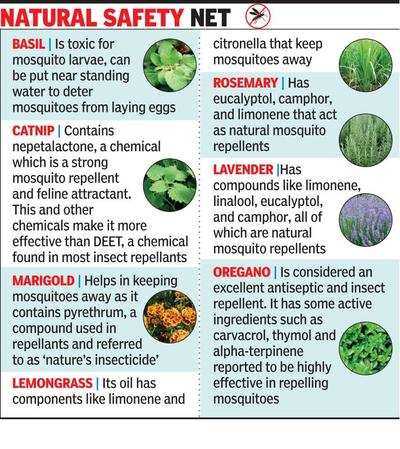
Bug zappers, also known as insect electrocutors, are devices that use ultraviolet light to attract and kill flying insects, including mosquitoes. These devices can be an effective way to control mosquito populations in your yard. Here’s how they work and how to install them for maximum effectiveness.
How Bug Zappers Work
Bug zappers work by using a combination of ultraviolet light and a charged grid. The ultraviolet light attracts mosquitoes and other flying insects towards the device. When the insects come into contact with the grid, they are electrocuted and killed instantly.
One important thing to note is that bug zappers do not necessarily repel mosquitoes. Instead, they eliminate them once they are attracted to the device. This means that bug zappers should be used in conjunction with other mosquito control methods, such as eliminating standing water and using natural repellents.
Installing Bug Zappers

When installing bug zappers, it’s important to consider the following factors:
- Placement: Bug zappers should be placed away from areas where you spend a lot of time, such as patios and seating areas. This will minimize the attraction of mosquitoes towards these areas.
- Height: The ideal height for bug zappers is about 6-10 feet off the ground. This will ensure that the light is visible to mosquitoes and other flying insects without obstructing the view for humans.
- Cleaning: Bug zappers should be cleaned regularly to remove dead insects and debris. This will prevent the buildup of dead mosquitoes, which can reduce the overall effectiveness of the device.
- Power source: Bug zappers can be powered by electricity or solar energy. Ensure that you have a suitable power source available before installing the device.
Overall, installing bug zappers can be a beneficial addition to your mosquito control strategy. However, it’s important to remember that these devices should be used in combination with other methods for best results.
How bug zappers work and their effectiveness
Bug zappers are devices that are designed to attract and kill insects, including mosquitoes. They work by utilizing several key components to lure insects towards them and then electrocuting them.
Components of a bug zapper
- Ultraviolet light: Bug zappers typically use ultraviolet (UV) light bulbs to attract insects. Many flying insects, including mosquitoes, are naturally attracted to UV light.
- Electric grid: Bug zappers have an electric grid that surrounds the light source. When insects fly towards the light, they come into contact with the grid and are electrocuted.
- Transformer: The transformer in a bug zapper is responsible for converting the standard voltage of an electrical outlet into a higher voltage that is used to electrocute the insects.
- Casing: The casing of a bug zapper is typically made of durable materials to protect the internal components from the weather and to prevent accidental contact with the electric grid.
Effectiveness of bug zappers
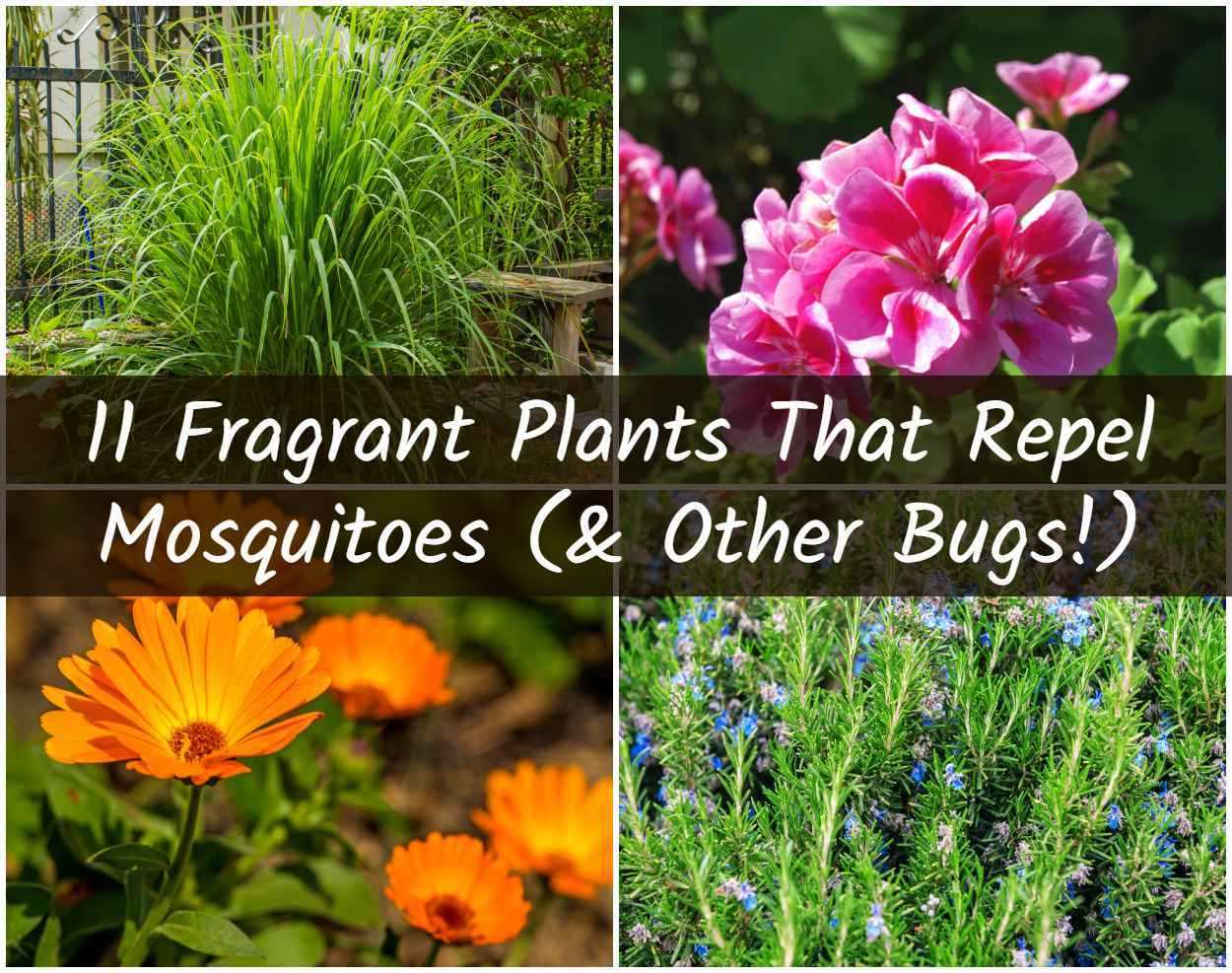
Bug zappers can be effective at killing mosquitoes and other flying insects, but their overall effectiveness may vary depending on several factors:
- Attractiveness: Bug zappers rely on attracting insects towards them. However, some studies have shown that certain species of mosquitoes may not be as strongly attracted to UV light compared to other attractants like body heat or chemical cues such as carbon dioxide.
- Placement: The placement of bug zappers can greatly affect their effectiveness. It is important to position them in areas where mosquitoes are likely to be present, such as near standing water or in shady areas where mosquitoes rest during the day.
- Other attractants: Some bug zappers are equipped with additional attractants, such as chemical scents, to enhance their effectiveness. These attractants can help lure mosquitoes towards the device.
- Area coverage: Bug zappers have a limited range of attraction, so larger areas may require multiple devices for better coverage and effectiveness.
While bug zappers can be effective at reducing the mosquito population in a specific area, they should not be relied upon as the sole method of mosquito control. The use of bug zappers can be complemented with other strategies such as using mosquito repellent plants or removing standing water where mosquitoes breed to achieve better results in controlling mosquitoes naturally.
Questions and Answers:
Which plants are effective at repelling mosquitoes?
There are several plants that are effective at repelling mosquitoes, including citronella, basil, lavender, peppermint, and marigold.
How do these plants repel mosquitoes?
These plants contain natural compounds that mosquitoes find repulsive, such as citronella oil in citronella grass and eugenol in basil. When these compounds are released into the air, they can mask the scents that attract mosquitoes and make it difficult for them to find their targets.
Can these plants be grown indoors?
Yes, many of these plants can be grown indoors. For example, you can grow basil, lavender, and peppermint in pots and place them near windows or doorways to help repel mosquitoes.
How often should these plants be watered?
The watering frequency depends on the specific plant and its needs. Generally, it is recommended to keep the soil consistently moist but not waterlogged. It’s important to check the moisture level of the soil regularly and adjust the watering accordingly.
Are there any other benefits to having these plants around?
Yes, apart from repelling mosquitoes, many of these plants have other benefits. For example, lavender and peppermint have a calming effect and can help reduce stress and promote better sleep. Basil and marigold can be used in cooking or herbal remedies due to their health benefits.
Can these plants be used as a sole method of mosquito control?
While these plants can help repel mosquitoes, they are not a foolproof method of mosquito control. It is recommended to use them in combination with other techniques, such as eliminating standing water and using mosquito repellents, to effectively reduce mosquito populations.


